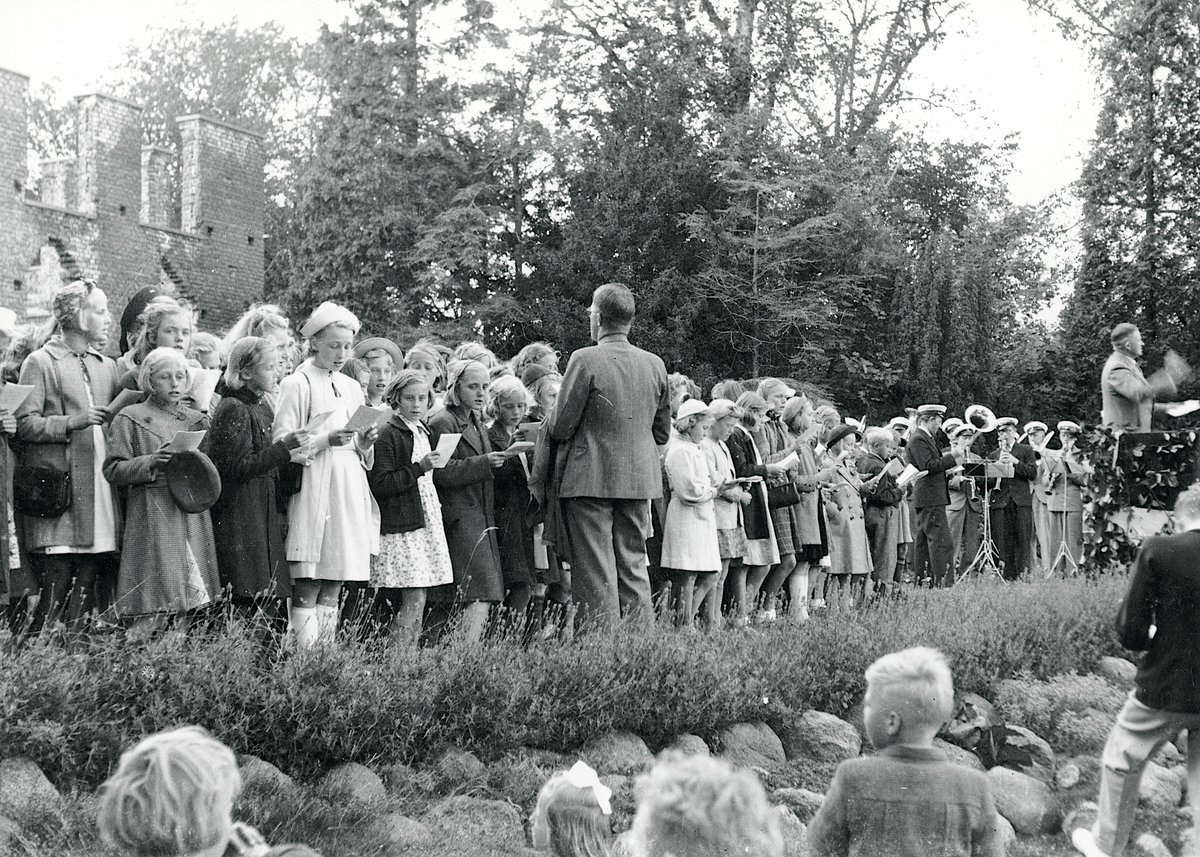The Unit for Song Studies was established in 2023 and is intended as a collective framework for different academic approaches to song research. The unit examines song as a technical umbrella term; a hub that unites aspects of different academic fields such as language, literature, ritual studies, sociology, anthropology, social sciences, history, religion, theology, musicology and health sciences – amongst several others.
Song research has traditionally been distributed between many different academic fields, but in recent years the international standard has moved towards gathering all of these approaches under the common label “song studies”. Amongst other things, song studies explore song’s significant role in and connection to both culture and public health, a topic of increased academic interest. In recent years, song culture has gained attention in both public and scholarly spheres because of its ability to strengthen cultural resilience and cultural democracy, as well as its importance as invaluable cultural heritage.
Song and song culture in all forms are of interest to the Unit for Song Studies, but the primary focus of our current research projects is the different communities of song. How does song and singing strengthen the feeling of community and the social connectedness between people? What mechanisms of inclusion and exclusion are at work when it comes to song? How has the role of communal signing changed throughout history? What role does song play as both tangible and intangible cultural heritage? Furthermore, what is the connection between song and health – health meaning anything from social bonding to strengthened personal wellbeing?
- In October 2022, we conducted a questionnaire on contemporary Danish song culture in collaboration with the analytical institute Yougov and funded by the Augustinus Foundation. This survey outline the dispersal of communal singing and the average Dane’s opinion hereof. We are currently writing a report on our findings.
- Denmark is often referred to as a singing nation, and people say that there is room for everyone within the community of song. But what does this entail? And are there limitations to the inclusivity of communal singing? These questions make up the foundation of the current research project at the Unit for Song Studies: “Communal singing – A singing society?”, or ComSing for short. This project investigates the significance and role of communal singing in relation to Danish identity and community. Communal singing was a central part of the process of nation building in Denmark in the 19th century, and N.F.S. Grundtvig is often listed as a key contributor. Likewise, communal singing was regarded as an important Danish practice during the Covid-19 pandemic and the resulting lockdowns; communal singing was encouraged through various digital initiatives in an attempt to strengthen the feeling of solidarity in Danish society. Public events in Denmark often revolve around communal singing, whether this be events in libraries or community centres; song is used as a tool for intimacy, and communal singing’s ability to generate a sense of unity is
highlighted during such events. Nevertheless, the cultural history of communal singing in Denmark is not well documented, nor is there a lot of empirical data on its ability to generate a sense of community amongst participators. Therefore, the ComSing project will explore these questions thoroughly. As part of this project, Postdoc Anne Agersnap and Katrine Frøkjær Baunvig, head of the Centre for Grundtvig Studies, investigate the use of the term “communal singing” in Danish newspapers from 1788 to present day. This project will answer questions such as: when/why/where does communal singing first occur in Denmark? Who is communal singing targeted towards and how does this evolve throughout history? What do we associate with the term “communal singing”?
- Furthermore, postdoc Thomas Husted Kirkegaard and principal investigator Lea Wierød Borcak explore the social and cultural significance of communal singing today. By conducting interviews and observations, they shed light on questions such as: Why do Danes partake in communal singing? Who gains a sense of community from communal singing – and who does not? What is the relationship between socialisation and the Danish people’s connection to communal singing?
- Alongside the core group of researchers in Aarhus, Georgina Born, professor at University College of London and one of the leading researchers of Music and Anthropology in the world, is also part of the ComSing project. She has thorough experience with anthropological and sociological research on communities of song and music, as well as their cultural and social associations.
- The ComSing project is funded by the Carlsberg Foundation. The project will take place over the course of three years and is expected to conclude in the spring of 2026.
